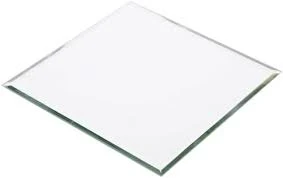

Horticultural Float Glass An Essential Component for Modern Greenhouses
Horticultural float glass has become a critical material in the construction and design of modern greenhouses. As an essential component, it plays a significant role in optimizing plant growth and enhancing horticultural practices. This specialized glass offers numerous advantages that meet the unique needs of plant cultivation, making it a preferred choice for greenhouse construction.
The fundamental characteristic of horticultural float glass is its excellent light transmission. Plants require sunlight for photosynthesis, the process by which they convert light energy into chemical energy to fuel growth. Horticultural float glass is specifically designed to allow a high percentage of sunlight to penetrate, ensuring that plants receive the light they need for optimal development. Unlike regular glass, which may filter out certain wavelengths of light, horticultural float glass maximizes the amount of usable light, including the critical blue and red wavelengths that are essential for plant photosynthesis.
In addition to its superior light transmission properties, horticultural float glass also exhibits exceptional thermal insulation. Maintaining stable temperatures within a greenhouse is vital for creating an ideal environment for plant growth. Horticultural float glass effectively minimizes heat loss during colder months, while also controlling excessive heat during the warmer seasons. This temperature regulation not only enhances plant health but also reduces energy costs associated with heating and cooling systems.

Durability is another key advantage of horticultural float glass
. Designed to withstand harsh environmental conditions, this type of glass is less prone to breakage and can endure the stresses of temperature fluctuations, wind, and other outdoor elements. Its resilience ensures a longer lifespan for greenhouses, ultimately making it a cost-effective investment for growers.Moreover, horticultural float glass is environmentally friendly. It is entirely recyclable, making it a sustainable choice for eco-conscious horticulturists. By opting for this type of glass, growers can reduce their ecological footprint while still achieving high standards of plant care and production.
The versatility of horticultural float glass extends beyond greenhouses. It is also used in various applications, including garden centers and retail nurseries. Its aesthetic appeal complements the natural beauty of plants, providing an attractive environment for customers and enhancing their shopping experience.
In conclusion, horticultural float glass is a vital component in the modern horticultural industry. Its ability to permit optimal light transmission, provide thermal insulation, and ensure durability makes it an essential choice for greenhouse construction. By utilizing this specialized glass, growers can create ideal growing environments that support plant health, promote sustainability, and ultimately lead to more successful horticultural practices. As the demand for efficient and eco-friendly farming solutions continues to rise, horticultural float glass will undoubtedly remain at the forefront of greenhouse technology, shaping the future of plant cultivation.